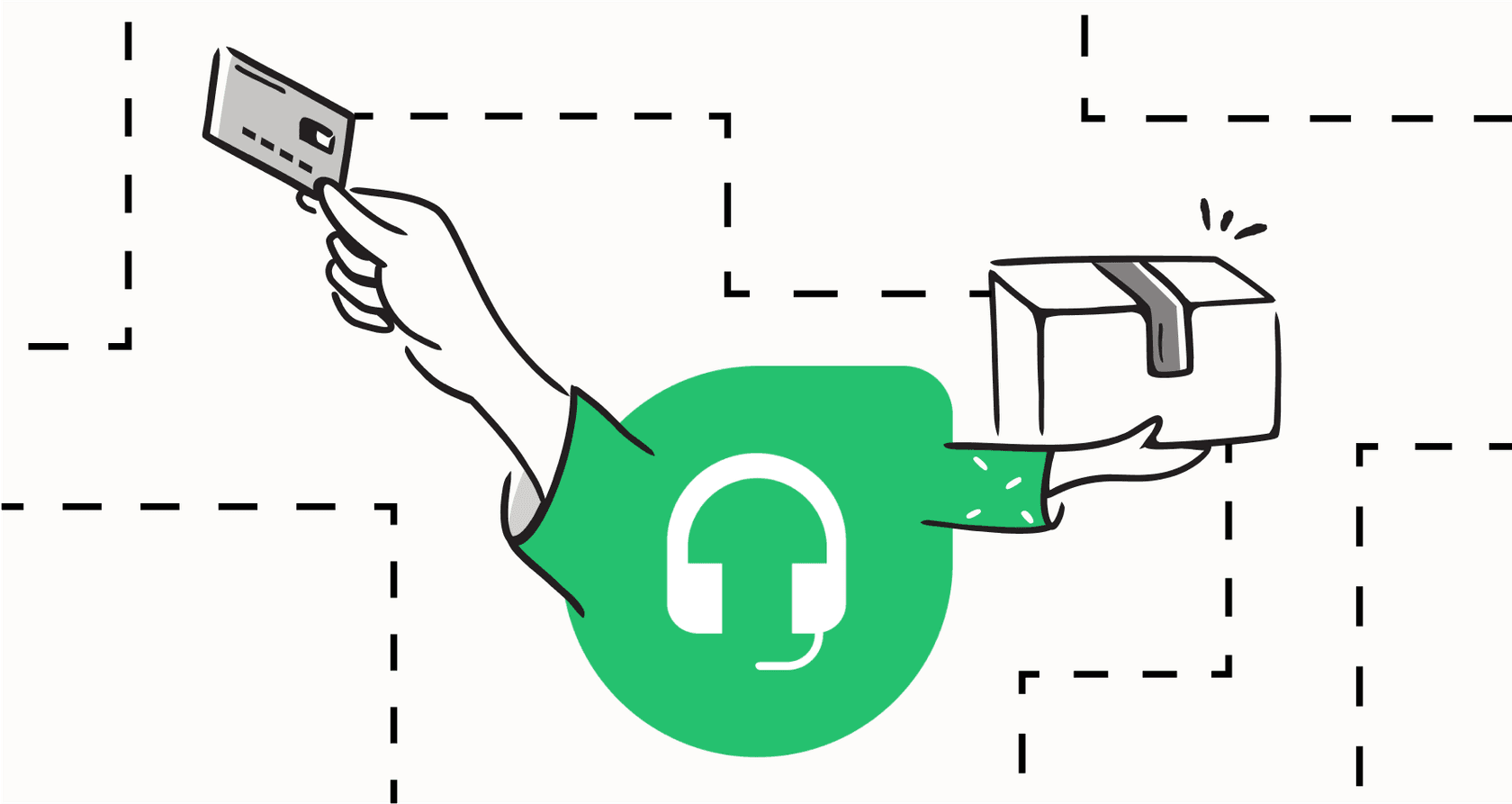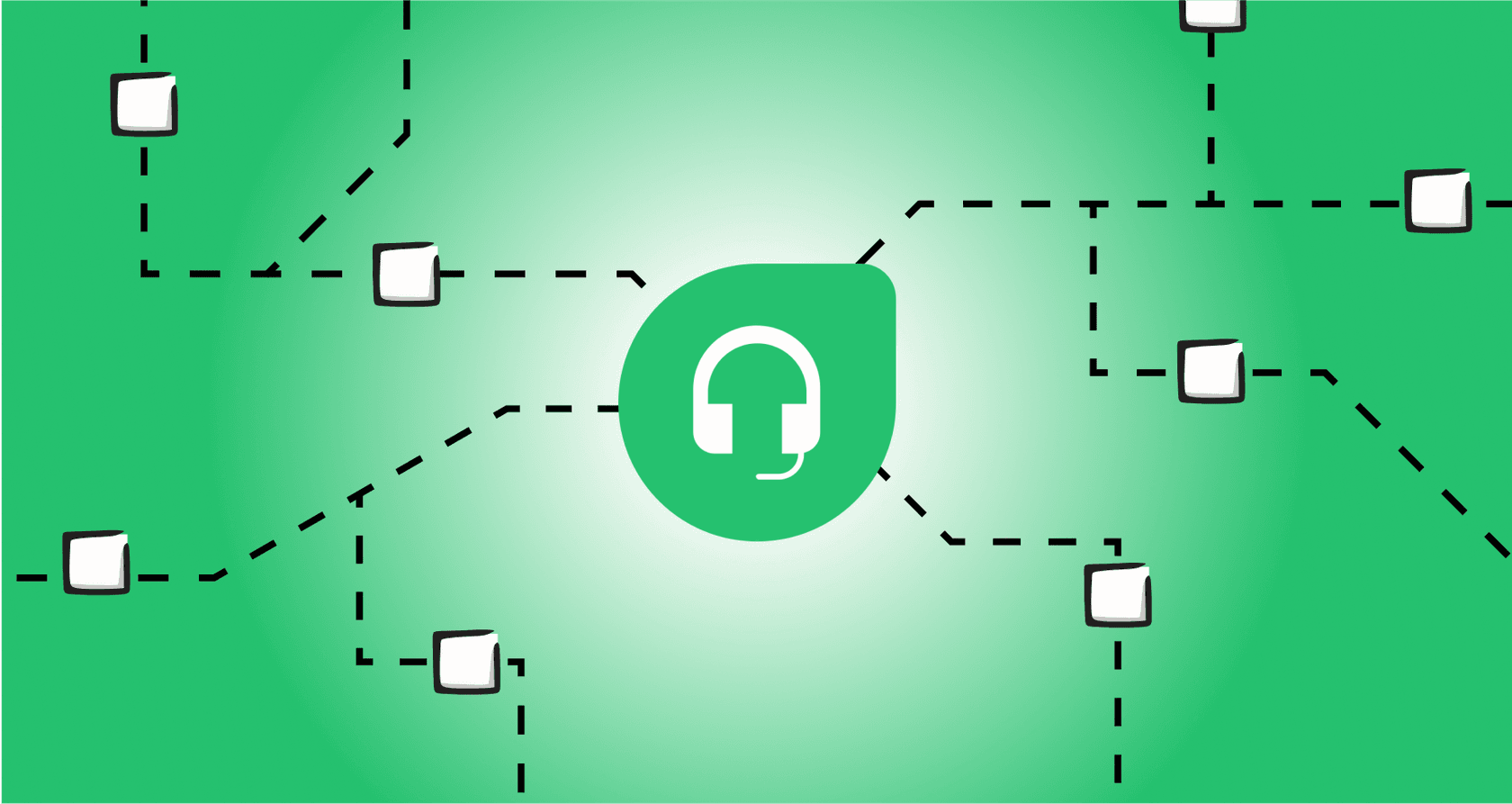A step-by-step guide to Freshdesk automation to send reminders on pending tickets

Stevia Putri

Stanley Nicholas
Last edited January 16, 2026
Expert Verified

Let's be real for a second: your "Pending" queue is probably something you want to stay on top of. It's that list of tickets waiting for a customer to reply, and each one is a task that needs a timely follow-up. While manual reminders are an option, they can be easy to overlook when things get busy.
Automating these follow-ups just makes sense. It saves time, helps your resolution rates, and gives every customer a consistent experience. Freshdesk has robust tools for this, offering a highly customizable system that allows you to tailor your automation to your specific workflow.
This guide will walk you through how to set up a Freshdesk automation to send reminders on pending tickets. We'll cover the standard method and then look at a modern, AI-powered approach that can work alongside your existing setup.
How do automated reminders for pending tickets work in Freshdesk?
Setting up a time-based reminder in Freshdesk is a process that utilizes two different automation features working together. Getting a handle on both is key to a successful setup.
First, you have Automation rules that run on ticket updates. These are your instant-reaction rules. They jump into action when something specific happens, like a ticket’s status changing. For our reminder setup, they're useful for things like automatically changing a ticket's status from "Pending" back to "Open" the moment a customer replies.
The real workhorse for our task is the Automation rules that run on hourly triggers. This feature scans all your tickets once an hour, checking them against time-based conditions you set up, like "hours since pending" is more than 24. This is the precise tool we'll use to send a follow-up after a certain amount of time has passed.
How to create a basic automated reminder in Freshdesk
To get a follow-up sequence running, you'll build "Hourly Trigger" rules. This modular approach allows you to build a collection of rules that manage your ticket lifecycle effectively.
Let’s walk through a common scenario in 2026: you want to send a reminder after two days of silence, and then a final notice before closing the ticket after seven days.
Rule 1: The first reminder after 48 hours
The goal here is simple: send a gentle nudge to the customer after two days.
Here’s the basic setup:
-
Condition: The ticket status must be "Pending" AND "Hours since agent responded" must be greater than 48 AND "Hours since agent responded" must be less than 49.
-
Action: The rule will "Send email to requester" with a message like, "Just checking in to see if you still need our help with this."
The "less than 49" condition is a specific logic-based configuration. Because the hourly trigger runs every hour, this trick ensures the action happens only once within a specific one-hour window, keeping your communications professional and timely.
Rule 2: The final reminder and resolution after 7 days
If the first nudge doesn’t get a response, this second rule serves as a final check-in before you close the loop.
Here’s how you’d build it:
-
Condition: The ticket status is still "Pending" AND "Hours since agent responded" is greater than 168 (that's 7 days) AND "Hours since agent responded" is less than 169.
-
Actions: This time, you’ll have two actions that run one after the other:
- "Send email to requester" with a final notice, something like, "We haven't heard back, so we're going to resolve this ticket for now. Just reply if you need more help!"
- "Set status as Resolved."
This system gets the job done reliably. For every extra reminder you want to send, you simply build another rule, giving you full control over every stage of the customer journey.
Best practices for Freshdesk automation rules
While the method above is effective, it’s important to manage your rules carefully as your support logic grows. Freshdesk's system is structured and logic-based, which is great for precision, though it helps to keep a few things in mind.
Here are some tips for managing your setup.
Organize your automation list
As you add more steps to your reminder sequence, your list of rules will grow. It's a good idea to name them clearly and review them periodically to ensure your workflow remains efficient.
Configuring triggers for single-use execution
Remembering the "greater than X / less than Y" condition is essential for ensuring your triggers run exactly when you want them to. Once you've mastered this logic, it becomes a powerful tool in your automation toolkit.
Managing time-based triggers
The system is built on elapsed time, which is perfect for ensuring that a specific number of hours have passed before an action is taken. This scheduling based on elapsed time ensures consistency regardless of the day of the week.
Optimizing the agent experience with custom fields
To make things even clearer for your team, teams often customize their setups by adding custom tags or fields. This can help agents see at a glance which reminders have been sent, further enhancing the visibility provided by Freshdesk's native interface.
A complementary way to send reminders: Using AI
Instead of managing several individual rules, you might consider using AI as a complementary option. A modern AI that integrates with your helpdesk can handle these workflows with flexible instructions alongside your existing Freshdesk rules.
This is where a tool like eesel AI can add value. It connects to your existing tools and provides a different way to manage workflows, offering additional flexibility for your support team.
Go live quickly
With eesel AI, you can connect your Freshdesk account in a few clicks. The platform is designed to be user-friendly, allowing you to get started quickly and see how it fits into your current process.
Flexible instructions
Using AI can simplify how you define your workflows. Instead of setting up multiple rules in Freshdesk, you can give the eesel AI Agent a single prompt:
"If a ticket is pending for 3 days, send a friendly follow-up. If there's still no reply after 7 days, send a final notification and resolve the ticket."
The AI can then work within the parameters you set, understanding the workflow from that one instruction and acting as a helpful assistant to your main ticketing system.

Test before you launch
One great feature is the eesel AI simulation mode, which lets you see how the AI would have handled past pending tickets. This gives you a clear forecast of its performance, allowing you to refine your instructions before going live with customers.

Freshdesk pricing: What you need for automated reminders
Freshdesk offers tiered plans to match different team sizes and requirements. To get the most out of advanced automation like hourly triggers, you'll want to look at their professional-grade offerings.
Here’s a quick look at their pricing as of 2026:
| Plan | Price (Billed Annually) | Key Automation Features |
|---|---|---|
| Free | $0 | Basic Ticketing, Knowledge Base |
| Growth | $15/agent/month | Includes essential automation capabilities. |
| Pro | $49/agent/month | Advanced automation, custom objects, and powerful reporting. |
| Enterprise | $79/agent/month | Full automation suite, audit logs, and enterprise-grade tools. |
As you can see on the Freshdesk Pricing Page, the Pro and Enterprise plans provide the comprehensive automation features discussed in this guide, offering great value for teams looking to scale their operations.
Automate your follow-ups with confidence
Setting up a Freshdesk automation to send reminders on pending tickets is a great way to ensure your support team stays efficient. Freshdesk's native system provides the precision and granular control that professional support teams need to manage their queues effectively.
Modern AI tools can also be a fantastic addition to your toolkit, offering a flexible way to manage reminders through natural language. Whether you stick with structured automation rules or add an AI layer, automating your pending tickets is a smart move for your team.
Ready to see how AI can complement your Freshdesk setup? Explore how an AI agent can help manage your follow-ups alongside your existing rules.
Try eesel AI for free and discover how it works with Freshdesk today.
Frequently asked questions
A Freshdesk automation to send reminders on pending tickets is a system within Freshdesk that leverages two types of automation rules to automatically send follow-up emails to customers for tickets awaiting their response. Primarily, "Automation rules that run on hourly triggers" scan tickets periodically to send these reminders after a set amount of time has passed.
To set up this automation, you primarily need to configure "Automation rules that run on hourly triggers." These rules allow you to define time-based conditions, such as hours since an agent last responded, to then trigger actions like sending an email reminder or updating the ticket's status.
The "less than X" condition is a useful configuration to ensure precision. Because Freshdesk's hourly triggers scan tickets every hour, this condition ensures the reminder is sent only within a specific one-hour window once the "greater than X" time condition is met.
Native Freshdesk automation is highly granular, which means you can create specific rules for different sequences. To keep your workflow organized, it's best to plan your time-based conditions carefully, ensuring each rule covers a specific window of time to manage the process effectively.
Yes, to access and configure the "Automation rules that run on hourly triggers" needed for time-based reminders, you will typically use Freshdesk's Pro or Enterprise plans. These plans offer advanced automation capabilities to help manage complex support needs.
Yes, you can create multiple follow-up stages (e.g., a first reminder, a second reminder, and a final notification). In Freshdesk, each stage is configured as an "hourly trigger" rule. This gives you complete control over the timing and messaging for every step of your follow-up process.
Yes, modern AI-powered tools like eesel AI offer a flexible addition to your setup. You can use it alongside Freshdesk to define reminder workflows using natural language instructions, providing another way to manage your support sequences.
Share this post

Article by
Stevia Putri
Stevia Putri is a marketing generalist at eesel AI, where she helps turn powerful AI tools into stories that resonate. She’s driven by curiosity, clarity, and the human side of technology.




